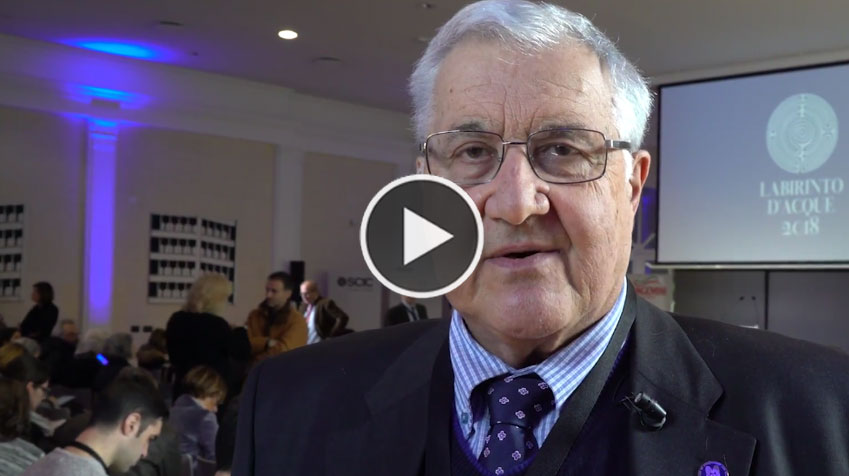Saturday, March the 24th, 09.30 am
Research, development and innovation in thermal medicine
“The definition of insanity is doing the same thing over and over again and expecting different results” (Albert Einstein)
In various traditions and cultures, Thermae have always been places where men found not only relief from their sufferings, but the possibility of exercising and developing their physical and sporting abilities, as well as to meet and socialize. Often linked to mythological or sacral events in various forms, water’s use for therapeutic purposes has lead to thermalism undergoing multiple mutations over the centuries with regard to its medical-scientific, architectural and management applicative aspects, as a result of the economic and socio-scientific evolution of man.
Today, with the enormous progress of scientific medicine, the use of a medium (water) that is apparently simple yet extremely complex and not yet fully investigated, may seem pleonastic if not pointless.
Indeed, in the era of pharmacogenomics, metabolomics, lipidomics and highly sophisticated diagnostic and surgical techniques, the role of Thermae can appear obsolete at best. In reality, a more complete definition of the physical and psychic well-being of people requires us to take note of the profound transformations of some key terms of the Welfare system.
Therefore, thermalism should be understood not only in terms of therapeutic efficacy, but also as a means to prevent and offset the medicalisation of our way of life; promoting the maintenance of the state of health and well-being (with consequent benefits in pharmacological and economic terms). However, this does not exempt thermalism from an appropriate scientific validation in line with the modern criteria of basic and clinical research, albeit with the use methodologies appropriate to the spa reality.
Research involves not only understanding the possible mechanisms of action of spa treatment, but also contributing to develop and innovate in the spa world.
With this in mind, with the HYDROGLOBE program the three Institutions listed below present a world-wide reference framework on the state of thermalism in its various aspects, in an attempt to provide concrete solutions for the various problems.
FEMTEC (www.femteconline.org) is one of the most representative associations of Thermal Medicine and Hydrotherapy, established in 1937. It maintains an official working relationship with the World Health Organization (WHO). Together, they develop programs to use natural resources for therapy and health. FEMTEC is co-promoter of the international WHO-GARD program (Global Alliance against Chronic Respiratory Diseases – www.who.int/respiratory/gard/en/). The Federation maintains close contacts with international associations of medical hydrology such as ISMH (International Society of Medical Hydrology and Climatology – www.ismh-direct.net) and with universities and ministries of health in various countries.
FoRST (www.fondazioneforst.it) is the Italian Foundation for Thermal Scientific Research, established in 2003. It supports and finances scientific research in hydrology and thermal medicine. FoRST is effectively the main if not only provider of research funding in this sector in Italy. Recently, FoRST has restructured its evaluation system of scientific projects so as to ensure the allocation of funds to the best projects through the use of standard project evaluation procedures, recognized internationally and using external experts as peer reviewers.
The aim is to provide answers to the various critical aspects of the Italian and international spa system:
Research: A remarkable effort is underway to update the sector with original and valuable scientific contributions published in high profile magazines.
Application development and innovation: We are witnessing a technological, applicative and structural evolution of the various spa methods, with considerable private investments and the consequent attention of public institutions.
Training of managers and health care workers: This is a highly critical area that requires considerable investigation and implementation.
Patients are actively involved in the process of therapy, rehabilitation and prevention, through a program of active thermalism promoted in collaboration with the European Association of Patients and users of Thermal Centers (EAPTC www.eaptc.net).
President of the World Federation of Hydrotherapy and Climatherapy (FEMTEC)
Dr. Umberto Solimene is President of the World Federation of Hydrotherapy and Climatherapy (FEMTEC), an NGO accredited by the World Health Organization (www.femteconline.org) Director of the WHO Center for Traditional, Complementary and Integrative Medicine, he is also Professor of Therapy and Thermal Medicine at the University of Milan.
Dr. Solimene is responsible for several international research programs in collaboration with the WHO and President of various scientific associations. Member of International Scientific Academies in the field of Thermal Medicine, he is the author of numerous monographs (10) and of over 300 scientific publications and is one of the most authoritative figures worldwide, with extensive international experience.

